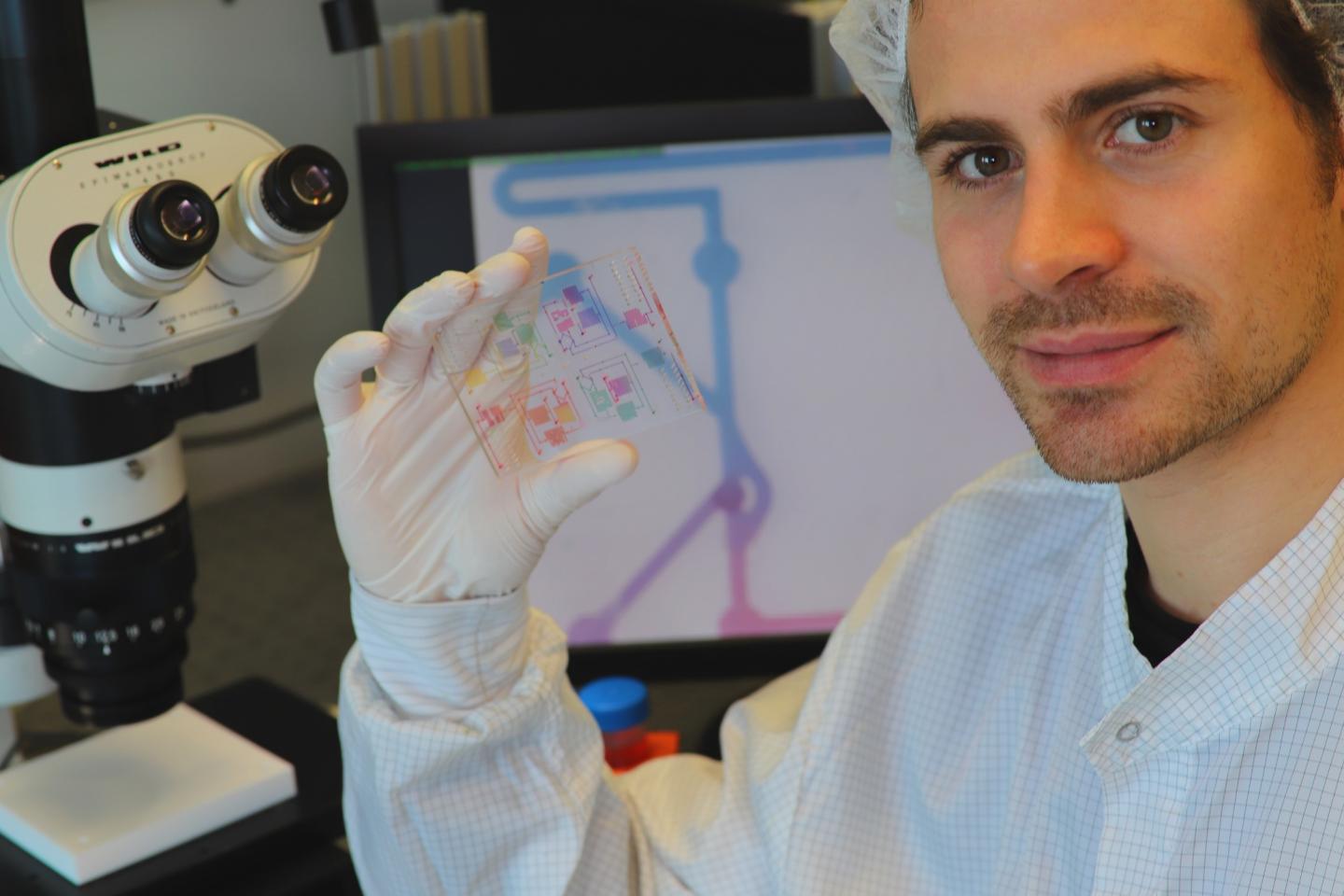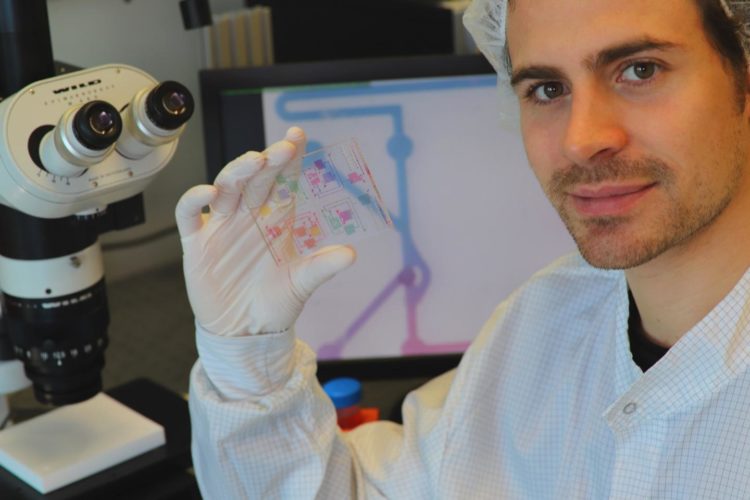
Credit: TU Dresden
As part of the German government’s High-Tech-Strategy 2025, the Federal Ministry of Education and Research (BMBF) is funding an interdisciplinary research group that aims to use an innovative circuit technology to solve a central problem of genetic investigation of human single cells. Medical professionals hope that such research will drastically improve the diagnosis and therapy of many serious diseases and enable the treatment of or even cure for cancer and immune diseases, for which there are currently no suitable methods available. However, this will require molecular analysis systems that can examine hundreds or thousands of these cells individually and simultaneously. Current technology does not allow for such analyses. Scientists in Dresden would therefore like to use chemo-fluidic circuits developed at the “Center for Advancing Electronics Dresden” cluster. These are based on chemical transistors, which, analogous to microelectronics, make it possible to combine complete information-processing systems on a single chip. However, they do not control electrical currents, but rather the fluid currents contained within the human cells, which are to be examined. And they themselves are directed through the chemicals and liquids necessary for the analysis. The researchers strive to build integrated circuits that, owing to the combination of thousands chemical transistors on a chip, are able to independently and simultaneously conduct complex analysis procedures on hundreds or thousands of individual human cells. Initially, the scientists will focus on the development of chemical chips for the diagnosis of a special type of white blood cell cancer (acute myeloid leukaemia), for which therapy could be fundamentally improved if successful. At a later stage, they hope to develop circuits for the treatment of other diseases.
Financing by the VIP+ Programme of the BMBF:
With the High-Tech-Strategy 2025 “Research and Innovation for People”, the Federal Government has set itself the goal of identifying the diverse application potentials of excellent research even more quickly and effectively, and of making them available to industry and society. To achieve this, the bridge between academic research and it’s commercial exploitation or societal application must be further strengthened. The BMBF funding measure “Validation of the technological and societal innovation potential of scientific research – VIP+” addresses this issue and supports researchers in systematically validating research results and in opening up areas of application.
###
Media Contact
Andreas Richter
[email protected]
49-351-463-36336
Original Source
https:/





